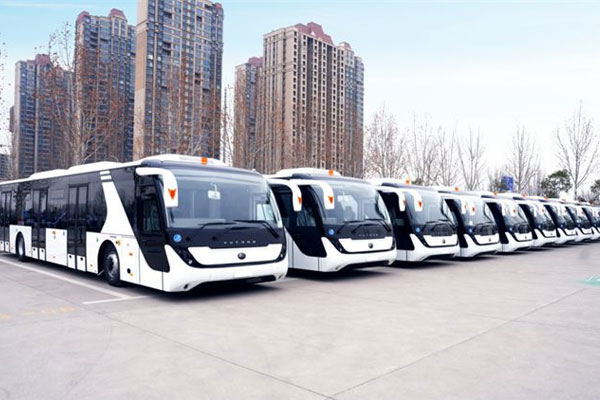EU Reaches Deal on 2020 Auto Emissions Law
27 June 2013
www.chinabuses.org:The European Union late on Monday agreed a compromise deal to enforce stricter rules on carbon dioxide emissions for all new EU automobiles from 2020.
The outline agreement on implementing a target of 95 grams of carbon dioxide per kilometer (g/km) still needs the official endorsement of EU member states.
German efforts to ensure that its luxury car makers, such as BMW and Daimler, can continue to produce more polluting, less fuel efficient cars complicated the final stages of talks.
But Ireland, holder of the rotating EU presidency, which has brokered the deal, said the compromise struck the right balance between environmental ambition and economic considerations.
"This agreement clearly represents a win-win for climate, consumers, innovation and jobs and provides another important step towards a competitive, low-carbon economy," Irish Environment Minister Phil Hogan said in a statement.
Under the rules, each manufacturer is assigned an individual target to take account of the nature of their fleet and their past cuts.
But making less-polluting cars is costly and restricts profit margins, which is why Germany sought ways to delay meeting the stricter rules.
Member states last week rejected a German plan that would have allowed automakers to carry over credits to pollute accrued before the new rules kick in 2020.
Known as supercredits, these permits are earned if manufacturers produce some very low emissions vehicles, such as electric cars, which German firms are making to meet a separate national target.
Germany then proposed another plan focused on another technical device, referred to as a multiplier.
As agreed on Monday, the multiplier still buys time for automakers because it increases the number of supercredits a manufacturer earns for each low emission vehicle.
Germany and its automakers have repeatedly defended supercredits, saying they encourage innovation.
The Commission, whose original proposal set a limit on supercredits, says the problem is that too many of them mean producers can carry on making higher emissions models and emissions levels will fail to meet the 2020 95 g/km target.
Germany as a whole is at the upper end of the EU emissions range, with 147 g/km in 2011, according to the International Council on Clean Transportation (ICCT).
The EU fleet average is around 132 g/km, so it should meet an existing goal of 130 g/km phased in between 2012 and 2015.
Environmental campaigners gave a cautious welcome to Monday's deal as a move in the right direction.
"It could have been even better for drivers, jobs and the EU economy if decision-makers had focused on the significant long-term benefits of more fuel efficient cars instead of the narrow, short-term interests of some carmakers," said Greg Archer of campaign group Transport & Environment, said.
Source : 互联网
Editor : Barbara Lewis and Ilona Wissen
Views:3716








